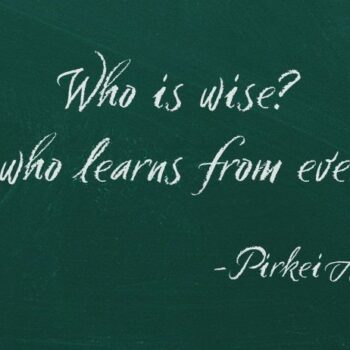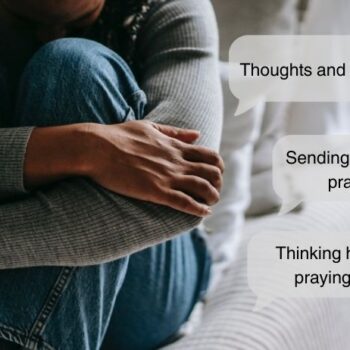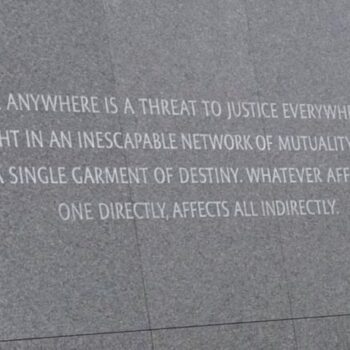Despite the creative imaginations that have conjured up artistically rendered selfies of biblical characters (you may have seen these passed around social media), we don’t have the benefit of video footage of anything that occurred in the Torah. As we read the narrative of the Israelite nation, there are many times when we read about events that seem to only be possible outside the scope of rationality. If certain events in the Torah seem improbable, maybe that calls into question the entire document. Faith usually means believing without seeing. However, our Torah portion this week includes a commandment from God about the obligation to see things for ourselves.
Since the kids like baking together, a while back Duncan prepped a baking activity, but instead of following the recipe exactly, he simply put out all the ingredients (in reasonable quantities) like sugar, flour, eggs, oil, salt, chocolate chips, etc., and invited them to create something. When you compare the Torah portions from the last few weeks, the Torah doesn’t just have one way of doing everything. In certain moments, it is imperative to explore, create, and experiment, and in others, there’s a precise formula to ensure safety, continuity, and balance.
Sacred spaces can be physical like the Tabernacle or a synagogue, or they can be personal, between two human beings. Parshat Terumah suggests that regardless of where they are, boundaries can have their own inherent holiness, and respecting them allows for more trusting relationships. The most beautiful movements together happen when you have your dance space and I have mine.
The Torah is explicit that the rights of two people in a committed relationship are food, clothing, and conjugal love. Jewish law values the rights of both partners to sexual satisfaction within their partnership.
There is so much to be learned from others who are outside of our small Jewish community. Parshat Yitro calls loudly to all of humanity to open our minds and learn from one another. It doesn’t mean that we have to share all aspects of belief, but it also doesn’t serve a purpose to close ourselves off from one another and miss the opportunity to grow.
How many times do we see people offering “thoughts and prayers” after tragic events? The Torah this week reminds us that perhaps it should be “actions and prayers.” Yes, we can have both a belief in something greater than ourselves and the imperative to take action to create a world that is a picture of justice and mercy.
Free will plays a role all throughout the Torah, but it’s especially evident when individuals rise up against injustice. Today too there are bystanders and upstanders, and the upstanders are the ones who know we’re in this together.










